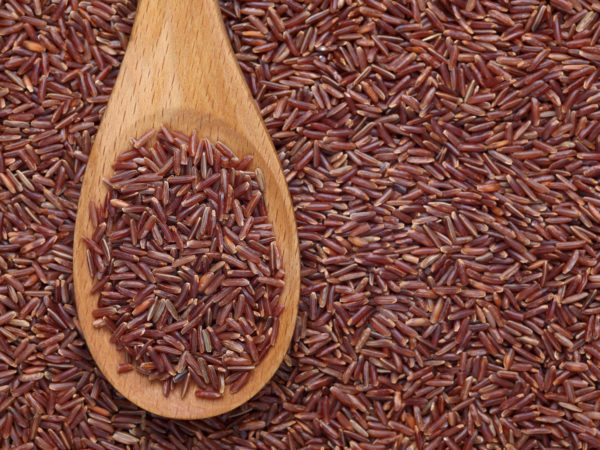Red Yeast Rice: A Good Alternative For High LDL Cholesterol?

If you are taking statin drugs to help lower your LDL (bad) cholesterol and experiencing adverse effects, you aren’t alone: Some studies suggest that up to one in ten people cannot tolerate them, ending up with muscle pain or cramps, called myalgia. In rare instances, people can experience an even more severe form of myalgia, called rhabdomyolysis where the breakdown of muscle cells causes weakness, severe muscle aches and can lead to kidney failure.
You may be at risk for statin intolerance if you are:
- 80 years or older
- Female
- Asian
- Have pre-existing conditions such as kidney, neuromuscular or liver problems
Excessive alcohol consumption, consuming grapefruit and excessive exercise can also put you at an increased risk for adverse reactions to statins.
One alternative to consider is red yeast rice, a natural supplement that can effectively help to lower cholesterol. It is a source of naturally occurring statins, the same class of prescription drugs used to lower and control cholesterol. Because its extract delivers a mix of those compounds rather than a single type of molecule, it is much less likely to cause the side effects mentioned above that sometimes occur with the pharmaceutical versions. Be sure to only use high quality forms of this supplement, and ensure it is proven free of citrinin, a by-product of production that can cause kidney failure.
While red yeast rice can be a good alternative for people who experience myalgia, it should not be taken by those with a history of rhabdomyolysis. Instead consult your physician for ways to address statin side effects while optimizing your cholesterol levels.
In addition, those who have high LDL cholesterol levels should partake in certain lifestyle changes that can make a big impact on overall health and cholesterol levels:
- If you’re overweight, aim to get to a healthy weight. Daily aerobic exercise can help you to lose weight while also increase the HDL (good) cholesterol levels.
- Follow a diet like my Anti-Inflammatory Diet that emphasizes vegetables, fruits, nuts and fish such as wild Alaskan salmon, which offers up heart-healthy omega-3 fatty acids.
- Minimize your intake of sugar and flour. Added sugar probably contributes more to heart disease than saturated fat.
- Avoid trans-fatty acids in items such as heavily processed foods, margarines and oils used in processed and fast foods. Trans-fatty acids are heart-damaging and can reduce HDL levels and further raise levels of LDL cholesterol. Look for the words “partially hydrogenated” as a sign of trans fat.
- Don’t smoke. Smoking is a major risk factor for heart disease.
- Address unhealthy stress, which can prompt the body to release fat into the bloodstream, raising cholesterol levels and overall increases the risk of heart disease. Daily breathing exercises, yoga, meditation, and other mind-body therapies can help.
Today’s Health Topics
Editor's Pick
Health Focus
Ask Dr. Weil's Q&A
| sponsor | ||
 |
||
|
||
|











